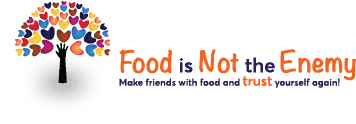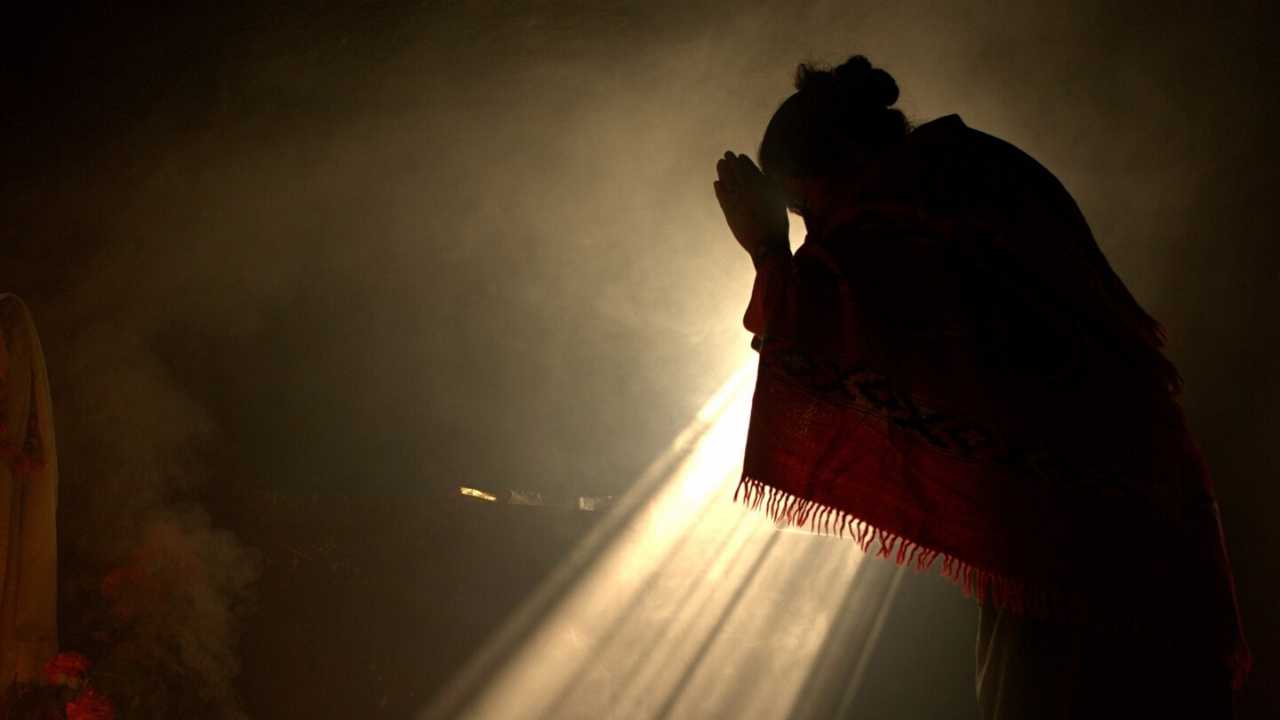Today you are reading Part 2 of Shame is the Enemy. Last month, I talked about shame and eating disorders.(If you missed it and want to correct that, or to just read it again, click here). This month, I continue the discussion. Because, shame really is the enemy… not food.
Although some shame (aka: guilt) is healthy, most of us feel too much shame. I believe all of those who suffer with disordered eating experience too much shame. This shame keeps you a slave to the eating disorder and destroys you.
Shame is the inner, critical voice that judges everything you do, say, believe, and think. It keeps you withdrawn, hiding, feeling worthless and unlovable.
An antidote to shame is sharing. Shame wants to stay secret. By sharing what you feel shame about, the shame starts to lift and heal.
I am big on emotions. Sadness, Joy, Anger, Hurt, Fear, Happiness, and Shame are all important to recognize and express. An important part of my job is to help people learn to feel. For those who work with me, they know I talk about feelings a lot.
It is my hope that my writing will touch you in a way that helps you to step out of this darkness of shame and begin to share yourself with others. Because, no matter what your shame may tell you… you are not unlovable or worthless!
“Who am I to be brilliant, gorgeous, talented, fabulous? Actually, who are you not to be? You are a child of God. Your playing small does not serve the world.” -Marianne Williamson
You are important and our society needs you… to help it change. Let’s start with you.
I have recently started watching “The West Wing” which I never saw while NBC aired it beginning in 1999. During Season 2, the character Josh needs therapy to deal with a trauma from Season 1. Leo, who is a recovering alcoholic on the show, tells Josh this story:
“This guy’s walking down the street when he falls in a hole. The walls are so steep he can’t get out.
“A doctor passes by and the guy shouts up, ‘Hey you. Can you help me out?’ The doctor writes a prescription, throws it down in the hole and moves on.
“Then a priest comes along and the guy shouts up, ‘Father, I’m down in this hole can you help me out?’ The priest writes out a prayer, throws it down in the hole and moves on.
“Then a friend walks by, ‘Hey, Joe, it’s me can you help me out?’ And the friend jumps in the hole. Our guy says, ‘Are you stupid? Now we’re both down here.’ The friend says, ‘Yeah, but I’ve been down here before and I know the way out.'”
-written by Aaron Sorkin
This is also the story of disordered eating.
Here are the stats:
• According to the National Eating Disorders Association, 40 percent of women have an eating disorder (http://www.nationaleatingdisorders.org/).
• According to Random House, 8 million people in the United States suffer from eating disorders (http://www.randomhouse.com/features/eatingdisorders/stats.html).
• HealthyWithin.com states that 80% of women are dissatisfied with their appearance (http://www.healthywithin.com/stats.htm).
• Many of the celebrities you admire have eating disorders (http://www.caringonline.com/eatdis/people.htm)
• According to me…I believe that all women and many men suffer with eating disorder thoughts and behaviors to some degree.
You are not alone.
However, like our guy falling in the hole, there are many women and men down in that hole with you. And, many of them know the way out or can help you find it.
Eating disorders are not just anorexia and bulimia. Those who suffer with eating disorders aren’t the super skinny or the morbidly obese. They are (at least) the 4 out of the 10 women you know. Think of it as disordered eating… or, a disordered relationship with food and/or body image.
Yes, society teaches us to have disordered eating. We learn from media, doctors, parents, some nutritionists, the fashion industry, peers and others to feel shame about our body and to see thin as the ideal and the ONLY way to look. Yes, there are things in place in society that tell us to feel bad about our bodies and to turn to disordered eating to fix it.
However, stop letting society shame you… start shaming society!
Society wins when you believe it and hold in that shame, believing yourself to be bad. In other words, when you stay down in the hole and don’t ask for help, your shame increases and so does your disordered eating.
When you embrace your disordered eating, when you turn to someone in the hole with you, you begin to heal. You begin to get support, you begin to face your darkness, you turn shame into strength and empower yourself to be YOU. You find your way out of the hole and help others find their way out too.
You are a unique individual, with your own talents, strengths, beliefs, history and even weaknesses. Sharing with others about being in the hole of disordered eating / disordered relationship with food / disordered relationship with your body, helps you to find your unique you and your way out.

